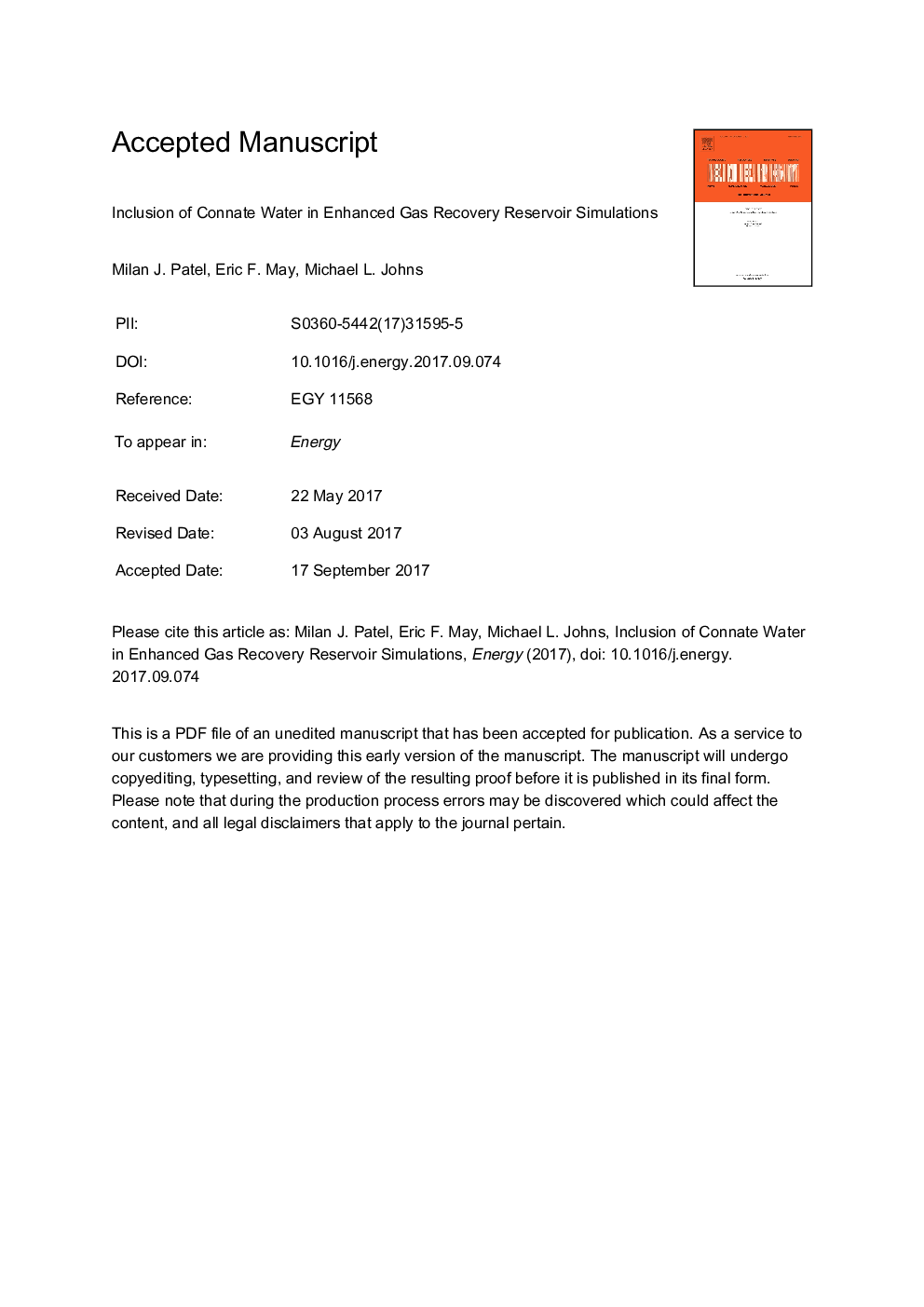| Article ID | Journal | Published Year | Pages | File Type |
|---|---|---|---|---|
| 8072658 | Energy | 2017 | 31 Pages |
Abstract
The code is applied to a 'quarter five-spot' benchmark scenario. The inclusion of connate water generally resulted in a reduction in breakthrough time and a decrease in methane recovery. The connate water's largest effect was to change the scCO2 flow field, which sank towards the reservoir floor, flooded the lowermost accessible layers and entered the production well via a high throughput channel ('coning'). The magnitude of these effects were, however, sensitive to well perforation depth, the influence of which was subsequently studied systematically. Well perforation depth was found to determine the duration of these sinking and coning events in a non-linear manner.
Keywords
Related Topics
Physical Sciences and Engineering
Energy
Energy (General)
Authors
Milan J. Patel, Eric F. May, Michael L. Johns,
